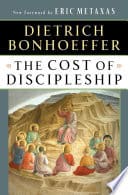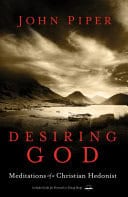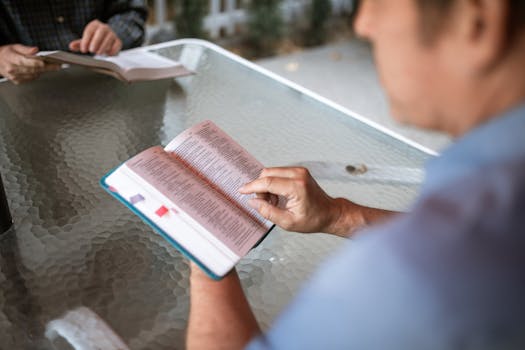If you’re reading this article, you probably read the Bible, too. Or, at least, you (hopefully!) listen when it is read at church services.
But have you ever wondered if there was a way to get more out of the Bible? One practice, Lectio Divina (“divine reading”), may be exactly what you’re looking for.
What Is Lectio Divina, Anyway?
Lectio Divina is based on an ancient meditative practice. Traditionally, it consists of reading, meditating, praying, and contemplating on a scripture passage.
Let’s explore a few approaches. If one of the options speaks to you, try it out. Or, try them all. Or, use the ideas that you like to create your own Lectio Divina routine.
1. Try the Liturgy of the Hours
The Liturgy of the Hours are collections of readings and prayers for each day meant to be read and prayed at specific times—usually once in the morning and once in the evening. Some books also have selections for during the day and at night.
I only recently started doing the Liturgy of the Hours while I was doing the Exodus 90 program. Since then, I’ve found that it helps me make time for God, even on days when I don’t have a formal church service. If I feel overwhelmed with work or other aspects of my life, I can usually stop and take a few minutes for the readings, and they really help.
You can find a Liturgy of the Hours book at Christian book stores or on the Internet. Some churches even give away daily reading books. You can also practice Lectio Divina without a book by finding readings online or subscribing to prayer email lists (like Operando’s Daily Morning Prayers).
2. Choose Your Own Passages
Programs like the Liturgy of the Hours are great for some people, but other people find them too rigid. If this sounds like you, you can meditate and pray on any passage that you want.
That could be a passage that stands out in your mind, a passage that you heard or read recently, or even a random passage from the Bible. If you don’t have a passage in mind, consider starting your session by praying that God will direct you to a passage that you really need today. Then, just open the book and start reading.
Starting with a passage that you know can be rewarding; if it stands out in your mind, it probably already means something to you. Consider praying that God will remind you of this passage when you need it in your daily life, or think about ways you can model aspects of your life on that passage.
It can be just as rewarding to start with a passage you don’t know. You may find a new favorite verse. If the part of the Bible that you’ve landed on doesn’t speak to you, consider using the notes that most Bibles have to relate that passage to other Bible passages and themes.
Using those Bible notes can be handy, but remember to pray that God will help you understand how the passage applies to you and your life. After all, you’re not writing a book report. You don’t just need to understand what a passage means, you need to understand what the passage means to you.
3. Meditate on Themes
Another benefit of choosing your own passages is that you can select a topic you really want to focus on or feel you need to develop in your life. With a tool called a “concordance,” that’s true even if you know the topic but don’t know the passage. “Concordances” allow you to search the Bible by key word.
Physical concordances work kind of like the index of an encyclopedia: you start by looking up the word you want, and the concordance indicates which passages in the Bible include that word. There are also online concordances that work kind of like any search engine, but you’re only searching through the Bible.
Be Not Afraid
A formal Latin term like Lectio Divina can feel intimidating. But it really just means actively praying on what a passage in the Bible means to you. The Bible has something to say to all of us, and we all have our own ways of listening.






















Leave a Comment